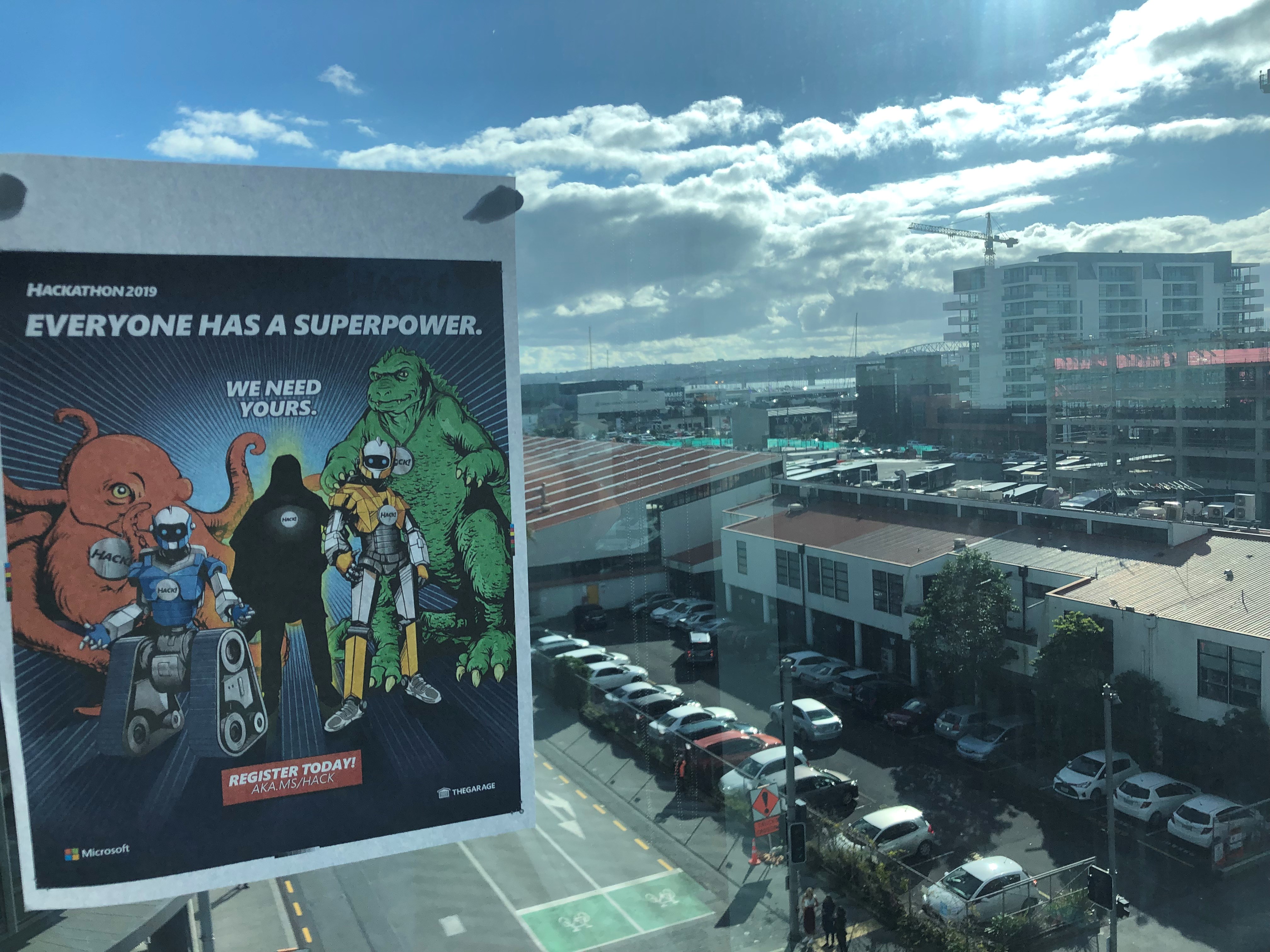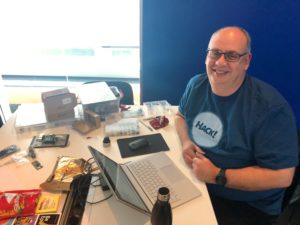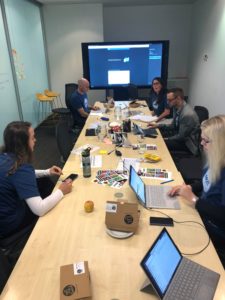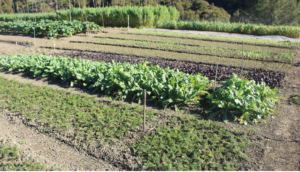AI powered Kumara?
If you were to visit the Auckland offices this week, you would have seen employees working on training a Machine Learning model to recognise the different stages of Kumara growth using photo ID, downloading massive data sets from environmental sources to overlay in a Power App to help determine causes and solutions for coastline beach litter, and drinking a lot of caffeinated beverages!
This week, of course, is Microsoft’s Global Hackathon. The Hackathon is the largest private Hackathon on the planet, this year nearly 25,000 employees in 465 cities in 69 countries participated.
A hackathon is a mishmash of two terms: “hacking” and “marathon.” Typically known as a coding competition that happens over a few days and involves sleep-deprived engineers, Microsoft’s Hackathon is different.
All employees, not just coders or makers, bring their unique skill sets to a project. While the technical motivation is still a driver, many teams won’t write a single line of code at all. The focus is on applying employee creativity, expertise and two days of high energy collaboration to solve big challenges in new ways.
“People mistake hacking as something that requires technical expertise. What it actually requires is imagination. You must first think creatively about ways to address a challenge, before you determine if technology can be part of the answer,” said Andre de Beer.
Andre typically works as a Solutions Architect at Microsoft. This week, he spent time classifying tomato images, coordinating with team members 7,000 miles away, and partnering with the General Manager of a non-profit focused on giving every kiwi kid the opportunity to learn to code. “Not your typical week. But it’s been incredible,” he said.
This is the first year Microsoft New Zealand has participated in the official global Hackathon and elected to focus its local efforts on “Hack for Good” – Hackathon category that asks participants to partner with a non-profit to empower them to advance their mission using Microsoft technology solutions. The New Zealand teams decided to support projects with Digital Future Aotearoa’s Electric Garden initiative and Sustainable Coastlines’ Litter Intelligence programme. And, the results of their work impressed not only the judges, but the organisations leadership.
“The Sustainable Coastlines team came out victorious and it was really due to how innovative the thinking was around their solution,” said Barrie Sheers, Microsoft NZ MD. “This is not a win due just to technical excellence, it is due to really creative and innovative thinking. Well deserved.”
“Two things impressed be about the process: first, how we can now really use massive amounts of data to resolve an issues; and second, just how fast these solutions can be created from scratch,” said Sarah Bowden, Director of One Commercial Partner.
“One of the teams was discussing how if you have an overflowing bath you can keep mopping up the overspill as a temporary solution, or you can stop and figure out the real solution. In other words: how do you find a way to turn off the tap? I liked this. Hearing Camden from Sustainable Coastlines discuss the power of data and the way they are using it to keep Kiwi beaches clean was inspiring. And how we created something in just two days, such a short time to start to find real-life solutions to some major problems. They say a hackathon is a marathon but to me if felt like a sprintathon!’
“Technology has the power to help us address some of the biggest environmental problems we face. Our work always comes back to people and their communities, and the team from Microsoft did a great job of coming up a tech solution that focused on better insights for communities to solve litter locally,” said Camden Howitt, Co-Founder and Coastlines Lead, Sustainable Coastlines.
As Hackathon wraps up, Microsoft employees will go back to their day jobs. But, it won’t be the end for the projects they helped shape. Microsoft employees are each given 3 days off each year to volunteer, Hackathon winners will receive an extra day to continue their work. Together, with our partners, we’ll continue to look for new ways technology can accelerate social impact across New Zealand.




